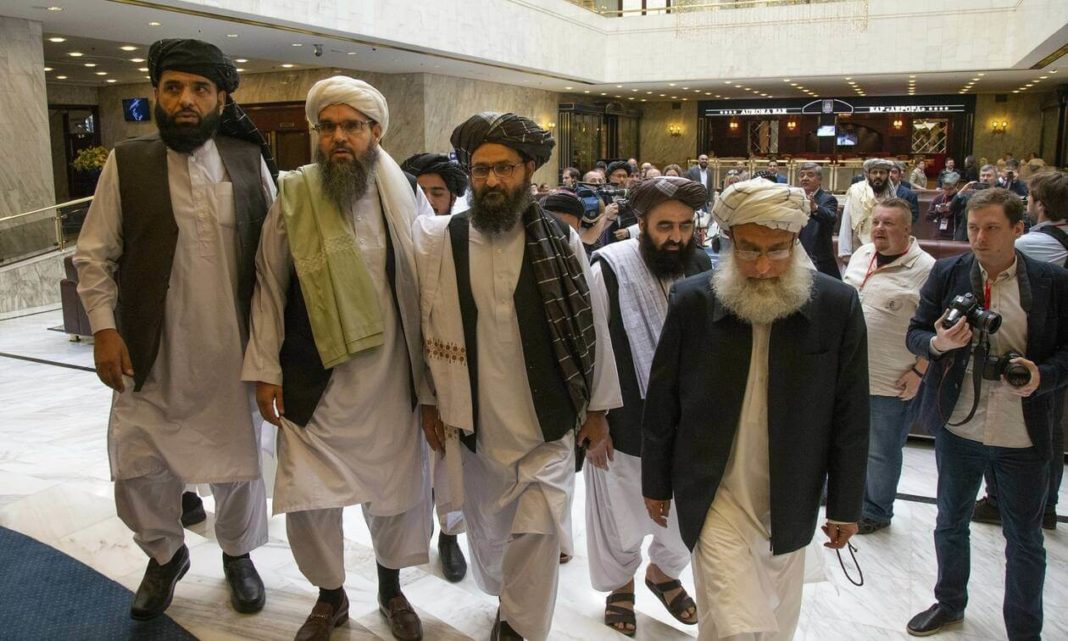The seven “heads” of the Taliban who take over the reins of Afghanistan.
For decades, the Taliban leadership remained in the shadows: Even before the US invasion, little was known about how the organization operated, beyond the names of a few top officials.
But now things are changing, and the Taliban are trying to “reinvent themselves,” presenting themselves as more moderate and capable of taking over the country’s government, gaining some “legitimacy” on the international stage.
In this context, their leadership should now emerge – and this is one of the big “bets” of the organization.
Read: A midwife grabs another woman’s newborn baby and throws it out the window
The Taliban’s top leadership includes many mujahedeen fighters who were trained by the United States during the Cold War to fight the Soviets.
Also, much of it comes from the Pashtuns, who dominate the southern part of the country.
Bloomberg presents in an article seven of the strongest men of the organization.
Haibatullah Ahunjada, Supreme Commander
Born in 1961, Ahunzada became the Taliban’s third-in-command since the US ousted his predecessor in 2016.
Read: A woman and eight children killed in bombing
He is best known as a religious leader rather than a military man, and maintains a low profile.
He has not been seen in public since becoming commander-in-chief, and few photos of him have been released.
His last public statement was made in May, for Eid al-Fitr, which marked the end of Ramadan.
Abdul Ghani Baradar, Deputy Chief
This is the main public “person” of the Taliban, who will probably lead the next government.
Read: Video Shock of Taliban General Execution – Blindfolded and Shot
He was close to Osama bin Laden and is one of the co-founders of the Taliban, along with Mullah Mohammad Omar, the one-eyed cleric who was the organization’s first leader.
He was captured in Karachi in 2010 and released in 2018 amid peace talks with the Trump administration.
He lived in Doha, Qatar, until his return to Kandahar, the organisation’s birthplace.
As the Taliban’s diplomatic leader, he signed the peace agreement with the Trump administration in February 2020.
Shirazuddin Hakani, the leader of an organization that has been identified as terrorist
The leader of the Haqqani network, designated by the United States as a terrorist organization, became the second deputy leader of the Taliban after the two organizations merged in 2016.
Read: Four Hezbollah members killed in bombing – Watch video
He is believed to be moving between Afghanistan and Pakistan, and is said to oversee the economy and military resources in both countries.
It is unknown at this time what he will do after leaving the post.
Mohamed Yakub, son of the founder
Yaqub is the son of the Taliban founder, Mullah Omar, which is why he was once considered a candidate for the post of leader.
Read: Journalist killed, 6th in 2021 – Watch video
Little is known about him.
He is said to have been educated in Afghanistan and now lives in Afghanistan.
He is believed to be overseeing the Taliban’s military activities, along with Shirazuddin Hakani.
Abdul Hakim Hakani, Chief Negotiator
He is thought to be close to Ahwaza, and has been the head of the Taliban negotiating team in talks with the former Afghan government.
Read: He filmed a man hanging in an amusement park believing it was a trick but was eventually killed
He also leads a council of religious leaders.
Sir Mohamed Abbas Stanikzai, diplomat
Unlike many of the organization’s top executives, he speaks fluent English and has traveled the world as deputy foreign minister during the Taliban’s rule in Afghanistan.
He had visited Washington in 1996 in a failed attempt to persuade the Clinton administration to recognize the Taliban government.
According to Reuters, he has also led delegations in China.
Zabihullah Mujahid, key spokesman
Mujahid had attended the first Taliban press conference in Kabul, and is expected to play an important role in communicating the organisation’s message to the international community.
Read: Shock and rage: Hundreds of men sexually assault a young woman
During the 20 years of the war, he communicated with journalists only by telephone or text message.



